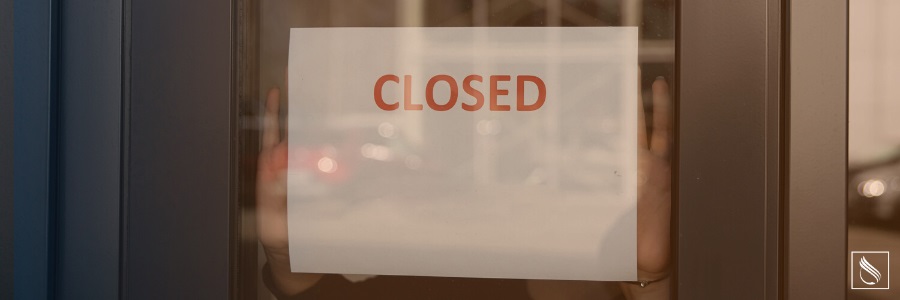With the outbreak of COVID-19, many changes are being experienced worldwide for the first time in a generation. Most of us have never witnessed the entire world come to a near standstill. During these challenging times, as church stewards, we have a responsibility to secure the assets of our respective institutions using the best possible methods and practices that are practical in this scenario.
Many buildings, such as schools, churches, and offices, have been closed during the pandemic. Employees have been asked to work out of our homes. So many of these once fully-occupied buildings are now vacant. However, the buildings still need to be maintained and taken care of remotely.The National Fire Protection Association (NFPA), an international leader in fire, life, and electrical safety, urges organizational leaders to ensure that fire protection and life safety systems be maintained in commercial buildings throughout the global pandemic. The NFPA is asking local governments to recognize the vendors that service these systems as essential workers due to the serious situation.
Some aspects of building maintenance can be done remotely, but some need physical presence and attention. The following tips can help you better manage and care for our churches and schools during this time.
Security and Surveillance
- Many buildings have a camera surveillance system. If not, it is recommended that all facilities take steps to have this installed to provide 24/7 video monitoring.
- If additional security is required in some areas, consider installing an electric gate which can be accessed by authorized personnel using key cards.
- Consider installing timer switches for all exterior and yard lights, as lighting is a significant safety device for security. Program lights to come on at dusk and go off at dawn.
- Many products allow users to monitor and record activity on their property. Some of these services also include remote monitoring by a professional security company, which provides the most protection, but comes at a higher cost.
- Vacant buildings and desperate people create a combination that means facilities are more vulnerable to theft and burglary than ever before. Schedule weekly security tours of both the interior and exterior of the campus to inspect for areas of vulnerability in the structures and signs of vandalism.
Fire and Alarm Systems
- Ensure that all fire suppression systems are operational, and all EXIT lights are working even when the building is unoccupied.
- Continue to maintain fire extinguishers, so they remain charged and tagged as per codes.
- If the building is installed with a sprinkler system, the riser room and equipment room must be inspected as per codes.
- Keep open communication with the alarm company about any alarms or suspicious activity.
- Physically check these systems once a week.
Heating and Cooling
- Maintain adequate temperatures d to prevent freezing of any water-bearing equipment and piping. It is recommended to keep temperatures between 55 degrees (12 Celsius) and 85 degrees (29 Celsius) to prevent humidity and mold.
- The Facility Manager can monitor these temperatures remotely, as many of the modern control systems can be installed on a smartphone.
Kitchen and Cafeteria
- Since the kitchen will be closed for some time, it is recommended to remove and discard all perishable items.
- Check and discard items stored in the freezer as appropriate.
- Clean and sanitize the entire kitchen as per CDC requirements.
- Shut off power to electrical appliances and close gas valves.
School Laboratory
- Ensure that all chemicals and acids be stored in the protected compartment under secure conditions.
- Shut off the gas supply to all burners and disconnect all electrical equipment.
- Remove all combustible material from the lab.
General Maintenance
- Clean and sanitize all restrooms and wash areas as per CDC recommendations.
- At regular intervals, clean door handles, elevator switches, and other surfaces that people touch regularly.
- Attend to grounds maintenance, landscaping, and yard work at regular intervals.
- Cordon off play areas and play equipment. Post a sign indicating that these areas and temporarily closed.
- Continue regular inspection of building roofs. Clear drains and spouts of any falling debris.
- Prevent the build-up of any trash or combustibles around the campus.
- Maintain pest control services on a regularly.
- Even though school buses and vehicles may not be used regularly, they need to be cleaned, started, and maintained on a regular schedule.
- If possible, park buses and vehicles in a secured garage or a locked parking area and monitor with a surveillance system.
- Secure all basement entries and lock all doors.
Conclusion
These are difficult and challenging times for us all, and many lives are at stake. Everyone is urged to exercise the utmost caution in all our activities. We can work together and reduce the loss of lives and sickness. Being mindful and understanding the knowledge and information provided by various agencies and the government helps achieve our goals to keep our lives and our institutions safe during this time.References:
NFPA.org
https://www.ajg.com/us/insurance/loss-control-insurance/
Image Credits: iStock.com/djedzura


